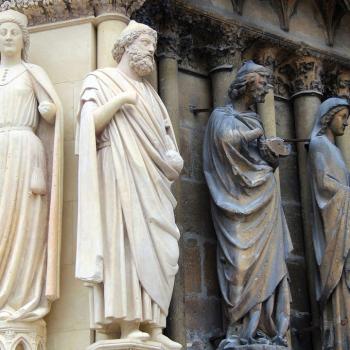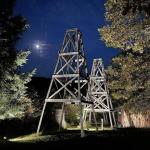The news from Iraq over the past several days has been bad and getting worse. So I turn, as usual, to Juan Cole's blog, Informed Comment, hoping Dr. Cole can help sort out what's going on:
A contingent of the Army of the Mahdi clashed with a US patrol in al-Showla. US helicopters strafed the militiamen and the headquarters of Muqtada al-Sadr. There were further demonstrations, in the Sank and Bab Sharqi neighborhoods of Baghdad, Militiamen assaulted a number of police stations. Meanwhile, some US troops and Iraqi police were detailed to take down pictures of Muqtada al-Sadr from Baghdad's walls. (-az-Zaman)
The Army of the Mahdi launched further attacks on Coalition bases near Najaf and Karbala. Their attempt to take the governor's mansion in Karbala was beaten back by forces under Polish command. Grand Ayatollah Ali Sistani's forces stopped them from taking the shrine of Imam Husayn in Karbala (- al-Hayat)
The Army of the Mahdi had some successes along with the setbacks. It took control of the governor's mansion in Basra, as well as of the mausoleum of Imam Ali in Najaf and a shrine in the nearby city of Kufa. The Sadrists have long coveted the shrine of Imam Ali, but it had been taken over by the Badr Corps of the Supreme Council for Islamic Revolution in Iraq. It is possible that the Badr Corps, which has a marriage of convenience to the Americans, withdrew rather than fight the Sadrists, with the knowledge that the US army was about to turn the Army of the Mahdi into hamburger anyway. Indeed, the Army of the Mahdi may control the streets in Najaf, at least for now.
This is getting complicated. The more I read, the more grateful I am that I'm not in Paul Bremer's shoes, having to sort through these many competing factions and to bring some measure of stability and security to Iraq in the next 86 days.
Do our leaders have a handle on this? Do they appreciate the complexity of this seemingly intractable problem?
Here's how the commander in chief summarized the weekend's developments in remarks this afternoon:
We've got tough work there because, you see, there are terrorists there who would rather kill innocent people than allow for the advance of freedom. That's what you're seeing going on. These people hate freedom, and we love freedom. And that's where the clash occurs.
Now it's possible that President Bush understands and appreciates the various factions that Cole describes and that he's secretly working behind the scenes to bring about real stability in occupied Iraq. The childishly simplistic rhetoric — "These people hate freedom, and we love freedom" — may just be a way of protecting this master plan by shielding it from public discussion.
It's also possible that this is really how and what Bush thinks.
Which seems more likely?
















